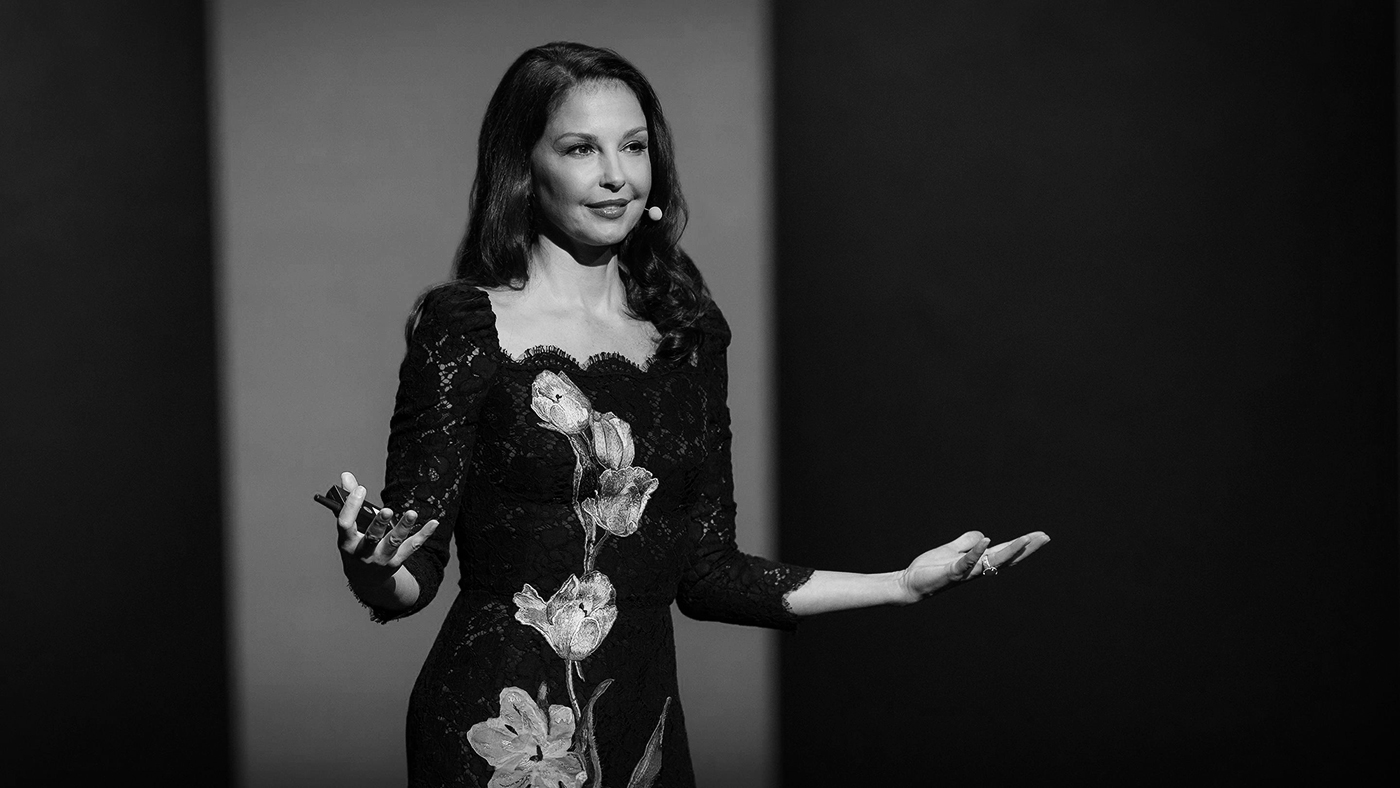This profile is published as a part of TIME’s TIME100 Impact Awards initiative, which recognizes leaders from across the world who are driving change in their communities. The next TIME100 Impact Awards ceremony will be held on Nov. 17 in Kigali, Rwanda.
Ashley Judd is an expert on the power of stories. She’s spent years telling them as an actor, earning Emmy and Golden Globe nominations for her performances. Stories are also crucial to her work as a humanitarian—not just to raise awareness and catalyze action, but also to build trust and connect with the people she hopes to help.
In her years of advocacy—in which she’s traveled the world to meet with vulnerable people, including those living in refugee camps, brothels, and slums—Judd says she’s most proud that the women and girls she encounters are willing to welcome her wherever they are and to share their experiences. She suspects they do so because of her openess in speaking about her own experiences with sexual violence, and because she listens in return. “We all need a good listening to. The world does a lot of talking,” Judd says. “When someone shows up and they're invested in your story, it is a relief to be witnessed in your reality and validated.”
She knows what she’s talking about. Judd was the first person to go on the record with the New York Times in 2017 about the sexual harassment she’d endured from Harvey Weinstein. Her courage emboldened other women to share their stories about Weinstein and others, leading to a flood of reporting that revealed the pervasiveness of sexual assault and harassment and galvanized the #MeToo movement.
Judd’s dedication to amplifying and elevating the voices of women who are less powerful than she is shines through her humanitarian work, which includes serving as a United Nations Population Fund (UNFPA) Goodwill Ambassador, a role she took on in 2016. With the UNFPA, the U.N.’s sexual and reproductive health agency, Judd has promoted the agency’s efforts to provide maternal health care to Rohingya refugees in Bangladesh; met with Syrian refugees at health clinics in Jordan, and elevated the work of mobile mental health teams caring for victims of gender-based violence in Ukraine. Altogether, she’s traveled to 22 countries to advocate for women and girls.
Judd says that facing some of the world’s greatest suffering has taken an emotional toll at times, especially following her mother’s death by suicide in 2022. But Judd has fortified herself, in part, by standing up as an advocate. In the last year, she’s fought for laws in the U.S. that can help protect families’ privacy after suicide. “There's a beautiful line in a recovery text that says, ‘in God's hands the dark past becomes our greatest asset. With it, we can avert death and misery for others,’” Judd says. “And so I think that a painful past can have infinite value being in service to others.”
Judd plans to show how love has helped her to endure hardships in a book she’s writing, her second, which she says will cover the loss of her mother and her decision to speak publicly about Weinstein. She’ll also reflect on moments of love and grace—including how, after her divorce, she developed a friendship with her former husband and his now wife, and how she fell in love with her current partner after meeting on a bush plane in the Democratic Republic of Congo. “It's kind of about the gifts of a broken heart,” she says.
The book, expected to hit shelves in mid-to-late 2024, won’t be a coda on her advocacy. At a time when an onslaught of other tragedies are unfolding around the world, Judd says that focusing on her mission of fighting for women helps prevent her from feeling overwhelmed. Though it's an area with a great amount of suffering, she says that also means it has the “greatest capacity for healing, hope and helping.” In the weeks and months ahead, she’ll continue to share her vision for a more equal world via op-eds and speaking engagements—all in service of ensuring women and their stories are heard.
If you or someone you know may be experiencing a mental-health crisis or contemplating suicide, call or text 988. In emergencies, call 911, or seek care from a local hospital or mental health provider.
- The 100 Most Influential People of 2024
- Coco Gauff Is Playing for Herself Now
- Scenes From Pro-Palestinian Encampments Across U.S. Universities
- 6 Compliments That Land Every Time
- If You're Dating Right Now, You're Brave: Column
- The AI That Could Heal a Divided Internet
- Fallout Is a Brilliant Model for the Future of Video Game Adaptations
- Want Weekly Recs on What to Watch, Read, and More? Sign Up for Worth Your Time
